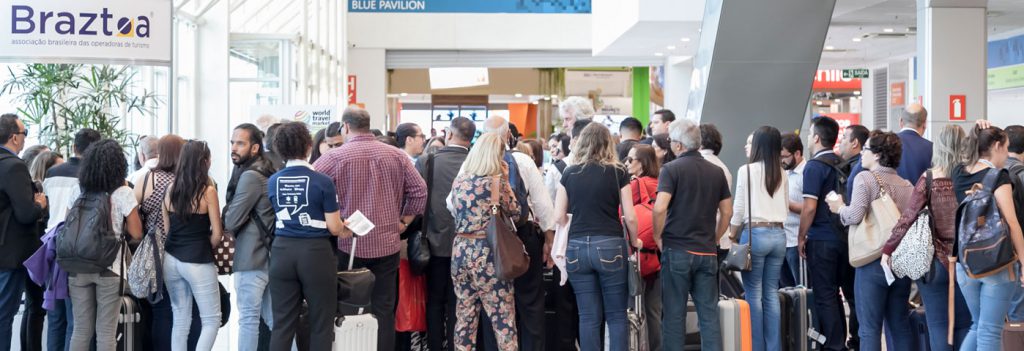
by Jeanine Pires
The years 2015 and now 2016 have been particularly difficult for Brazil and this has been reflected in both the economy of the continent and in various economic activities. In the travel and tourism industry we can say that the exchange rate has been one of the variables that has had most influence on global and Latin American tourist flows.
Income from tourism in South America remained practically unaltered between 2014 and 2015, at US$ 25.7 billion and US$ 25.6 billion, respectively, according to the World Tourism Organization (UNWTO). We must remember that changes in the volume of expenditure may not necessarily mean more spending, but result from the differences that exist in the foreign exchange rate between one year and another. Arrivals, on the other hand, increased by 5.4%, going from 29.1 million to 30.7 million between 2014 and 2015. We have, therefore, just 2.6% of the world travel flow.
The fact is that Brazil has ceased to be a great “traveller” and “spender”, which reduces the attention of international inward markets and at the same time reduces the offer of seats and the country’s accessibility and ability to attract foreigners. The number that reflects this scenario is the deficit in the tourism balance, which went from US$ 10.7 billion in 2010 to US$ 18.7 billion in 2014, and then fell to US$ 11.5 in 2015, also according to the UNWTO. The year 2016, at least up until May, also reveals a drastic drop in spending by Brazilians abroad: down 37.7% in comparison with the first five months of last year.
The current phase, which might provoke something new, is being conditioned by a combination of the desire by Brazilians to travel abroad and the drop in the exchange rate as from July this year. Even given the uncertainties about the degree of intervention of the Central Bank, the market for people travelling abroad has begun to heat up, exactly in the holiday period. We’re going to be monitoring it.
Given this nebulous scenario we also need to pay attention to the various facts of the global picture, which in addition to the way the American currency is strengthening is bringing challenges related to insecurity given the terrorist attacks, changes in the light of the possibility of the United Kingdom leaving the European Community, alterations in travel flows and other varied topics that should unite the travel sector and, at the same time, bring business opportunities to those who have a quick response.
We end here, just 30 days away from the Rio 2016 Olympic Games and accompanying the instantaneous changes and the capacity of our sector to face up to the challenges of an industry in transformation, but one that is becoming increasingly stronger and more resistant.
Jeanine Pires is the President of the Advisory Board of WTM Latin America, Director of Pires e Associados and the former President of EMBRATUR.
